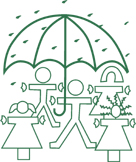|
|
|
 |
||||||||||||||
169 Grove Street Wellesley, MA 02492 Phone:781-237-1996 email: icadss@att.net |
The Institute for Child and Adolescent Development Children We Have Servedfjkdf VIGNETTE I Shayla was an eight year old third grader, attending an inner-city public school when she was referred to the ICAD Collaboration at her school. Her teacher and school counselor became very concerned because she was falling behind in class and making minimal progress towards obtaining grade level requirements. All were aware that Shayla was coping with two traumatic events that had occurred in her young life. The first was the shooting death of an uncle. The second was the premature death of her baby brother. Shayala carried a picture of her brother with her at all times and was often seen talking to the picture. It was not unusual in Shayla's religion and culture to talk to deceased loved ones. Her behavior (talking to the picture of her brother) led the school counselor and her teacher to wonder if she was emotionally disturbed and in need of help the school could not provide. ICAD's assessment indicated that Shayla's intellectual functioning fell in the average range and did not adequately explain her lack of academic progress. The assessment showed no evidence of thought or severe emotional disorders. However, two of Shayla's cognitive tools (focusing attention while ignoring distractions, and remembering information) were vulnerable to interference from her emotions. In other words when test stimuli asked Shayla to manage emotionally evocative information, she functioned well below her age expectation (below the 1st percentile when managing aggressive distractions, and at the 8th percentile when remembering information dealing with relationships). After 1-1/2 academic years of once a week participation in an ICAD group treatment program, which focused on helping Shayla balance the demands of her emotions with the demands of school, Shayla showed marked improvement. ICAD's second assessment at the end of the school year, placed Shayla in the 76th percentile for managing aggressive distractions and at the 38th percentile for remembering information dealing with relationships. These measured improvements were mirrored in the classroom, where Shayla, whose cognition became less blocked by her traumatic experiences, began to make small but noticeable academic gains. And most importantly, her teacher and school counselor were able to take the assessment information and use it to better help Shayla in the classroom.
At an ICAD collaboration site, on the North Shore of Boston, ICAD worked with a family that had recently moved to the area. The family had experienced financial difficulties and hoped a "new beginning" might put them back on track financially and emotionally. The family enrolled in the community agency's Nurturing Program. It soon became clear that the ICAD Early Intervention Program would meet the needs of the family. Parents (biological mother, step-father) reported their child as having a terrible struggle with school work in the classroom, refusing to do homework, refusing to keep belongings neat and orderly, and as extremely disrespectful to parents. Parents had threatened to send the child to another state to live with biological father. The child enjoyed summer visits with biological father but strongly expressed a desire not to leave mother, stepfather, and 2-½ year sibling "for good". This 7-½ year child was evaluated and found to be very bright,
and developmentally on track cognitively. But the personality testing
revealed much anxiety and sadness. The child was very related, very respectful
and was enjoyed by all ICAD examiners.
|
|||||||||||||
 |
A non-profit organization helping children grow within in spite of storms without™ Copyright © 2002 ICAD. All rights reserved. |